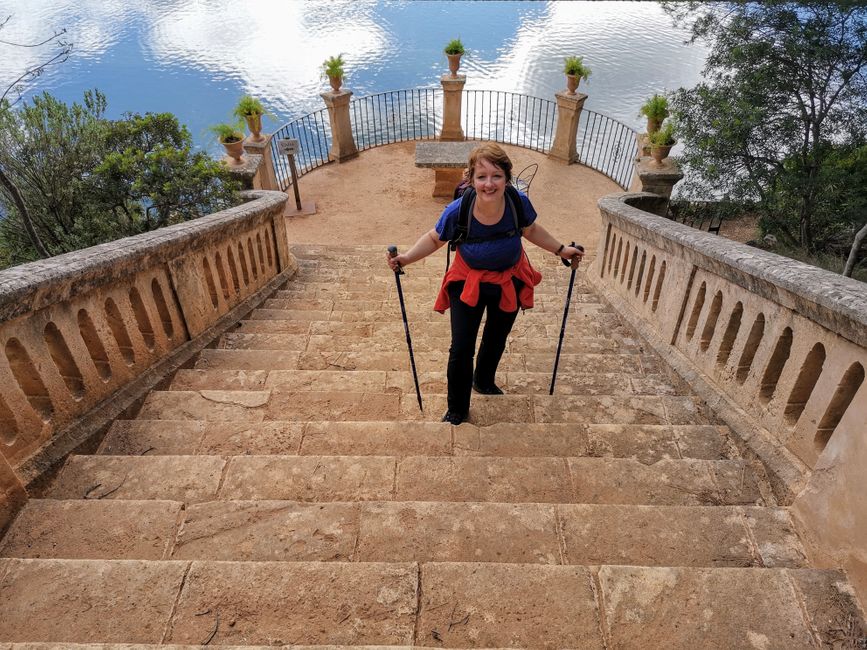Day 4, April 23: 1st day at the office in Kasese
Atejade: 26.04.2021
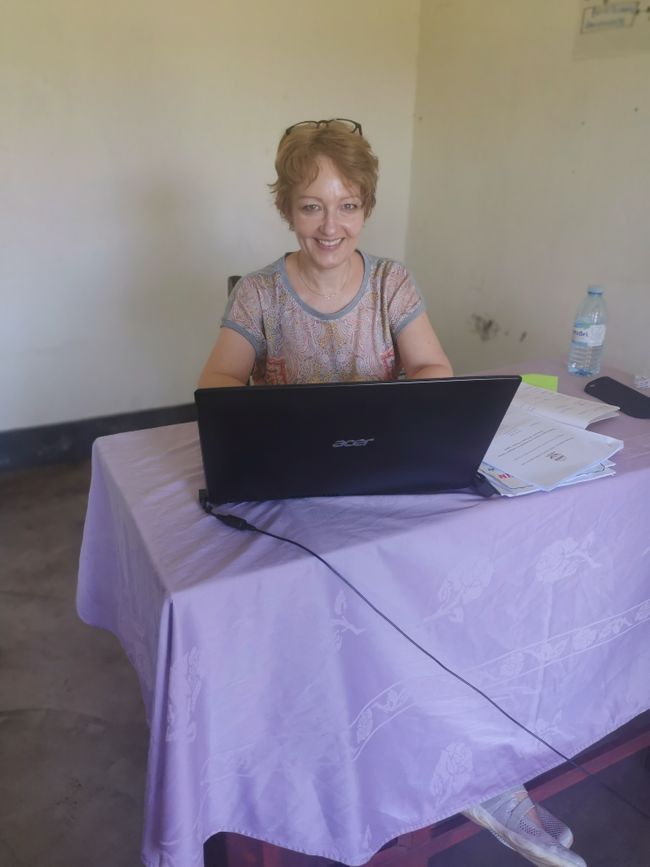
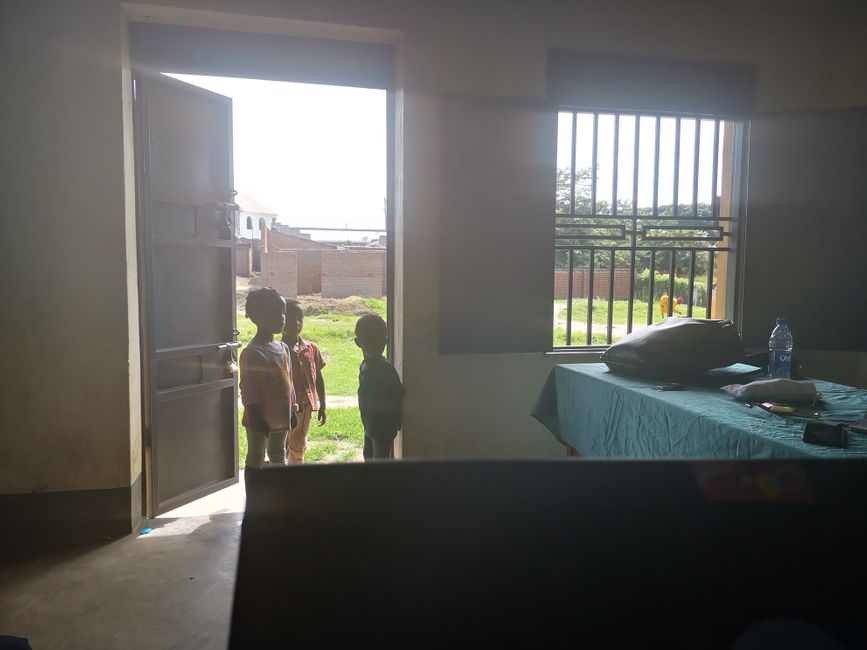
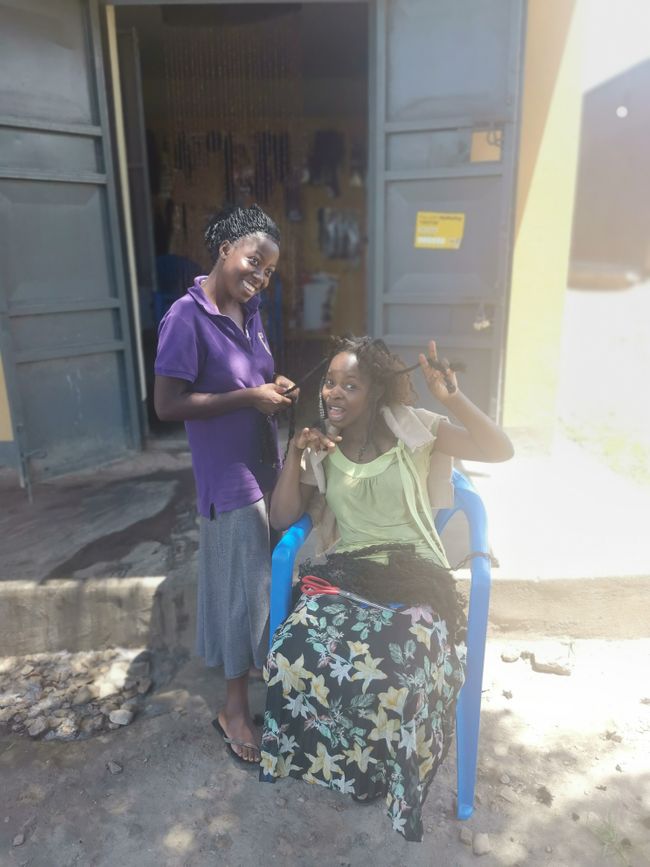
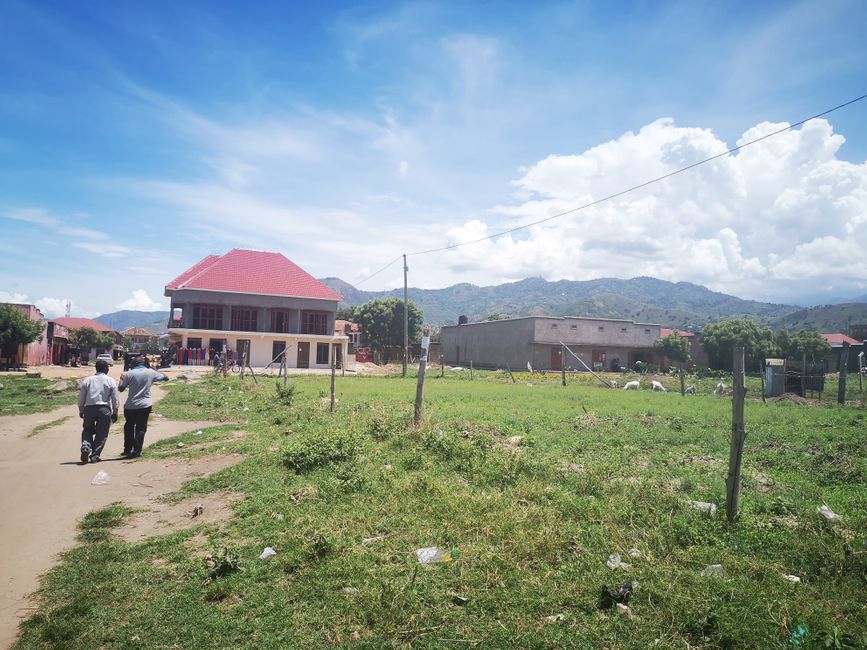
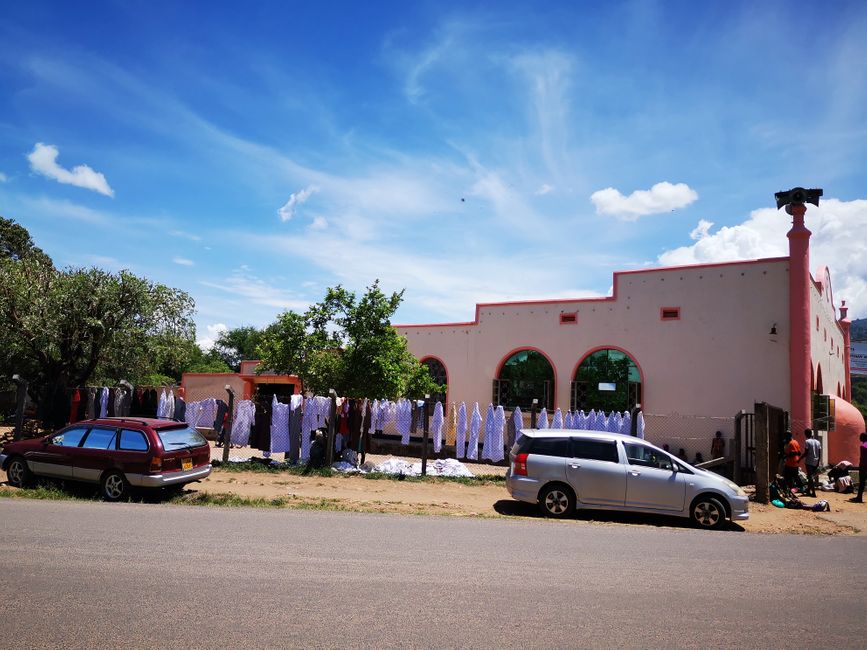
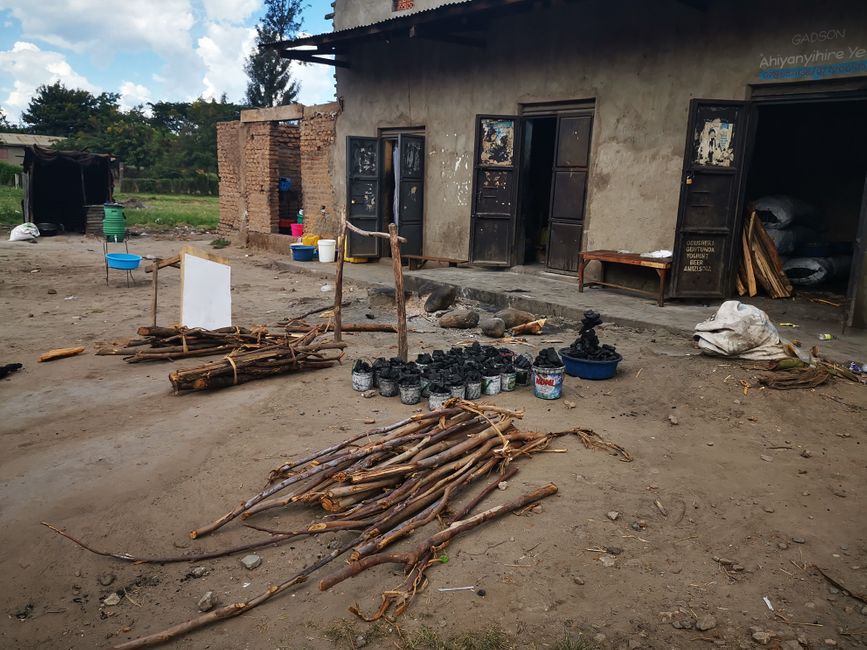
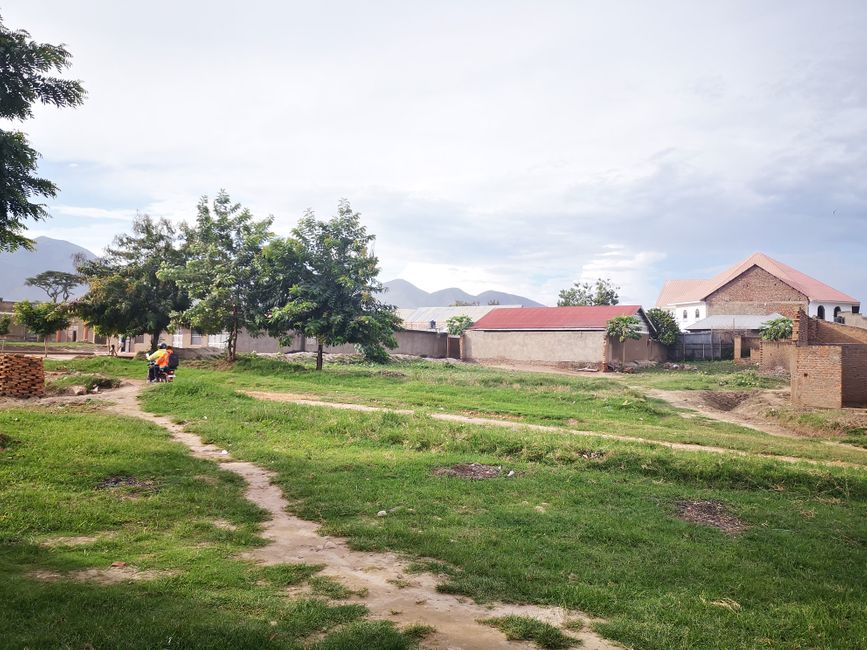
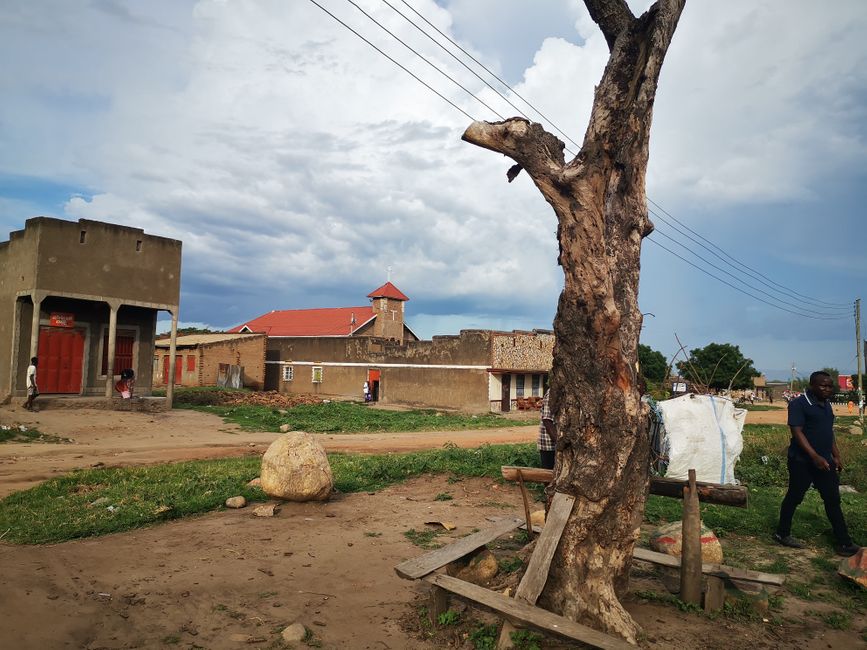
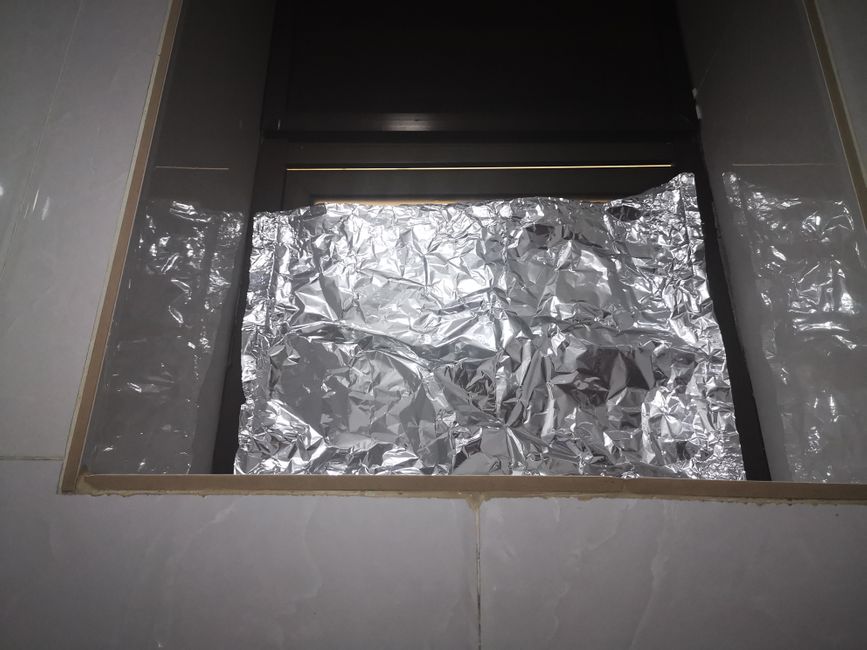
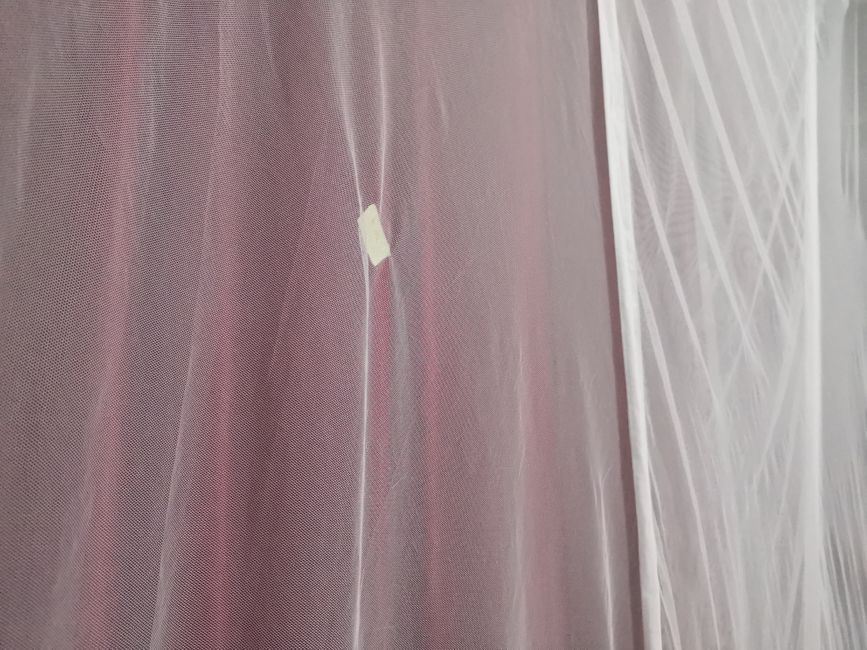
Alabapin si iwe iroyin
Today I get to know the office of RWECO-VIDE in Kasese. It is still relatively new, as the old office was washed away by the floodwaters of the Nyamwamba River last year.
There is no WIFI here, but I brought some things with me so that I can work without internet. Curious children come by from time to time and shout "Mzungu, Mzungu", which means "white-skinned". After the long winter in Germany, I am even paler than usual 😊
Bwambale and Ndumbuko are with me in the office; Ezekiel with his father-in-law, Godfrey, and Baluku also stop by during the day. I have many questions and already have some initial ideas for the tourism project, which we discuss and debate together.
After lunch, which I spend at the hotel, Bwambale picks me up and we briefly visit Baluku's office. He is wearing his dishdash (white robe) today because he is going to the mosque for Friday prayers. He converted from Christianity to Islam in order to marry his Muslim wife, from whom he is now divorced. He is raising the children alone.
I take the opportunity to ask him how he managed to build his travel agency. He works with a German and a Norwegian tour operator. It all started with his transport company. Because he is a good driver and owns cars (which is not the norm here), the business has developed for him. He has also been selling Samsung smartphones as contract phones, with a monthly fee (just like we do in Germany). I believe that I only know a small part of his business so far. He is very active and constantly organizing.
Back in the office, we continue to discuss some ideas. I also ask Bwambale and Ndumbuko about their education system:
Everyone here is aware of the importance of education. There are public schools that are supposed to be free (actually, because various fees are also levied here), but they do not guarantee a good education. Therefore, parents who can afford it send their children to private schools. The education system starts with nursery school at the age of 3, then continues with 7 years of primary school (P1 to P7), followed by 6 years of secondary school (S1 to S6), so that one obtains the "Uganda Advanced Certificate of Education" at around the age of 19. After that, there are colleges and universities, the duration of which depends on the type of study.
After completing P7 and S4, there are also exams and certificates. This year, the government has made it mandatory to attend school until S6. Previously, it was already possible to go to college after S4 to further train for professions such as teacher or nurse, but in the future, this will only be possible after completing S6. This is seen as rather critical because it was already associated with huge hurdles to complete school until S4. It is not uncommon to interrupt school repeatedly in order to earn money for the next stage during breaks.
Bwambale is a good example of how long it can take to be able to work in the chosen profession. He obtained his high school diploma in his mid-30s, then saved for several more years to be able to study. Only recently, at the age of 45, did he graduate as a lawyer. However, he is not yet allowed to work in this profession because he still lacks one year of legal training, which ends with an official degree and is again associated with very high fees. In the meantime, he works as a consultant for a law firm to gain practical training. However, this is not recognized as legal training. He has also completed several seminars in project management and leadership, which are not so expensive.
He supports his family through his own agriculture and saves money to be able to complete his legal training and later his master's degree. Such a career path requires incredible willpower and perseverance. I take my hat off!
In the morning, I suggested that we meet for a workshop at my hotel at the beginning of next week, as there is also WIFI there. We discussed this during lunch break with the hotel manager and briefly determined the duration and content of the workshop at the end of the working day before we finish at 5 p.m.
Yesterday I moved to another room. The hotel is located directly at the Main Mosque of Kasese and my room was in direct line of sight to the speaker system, where the muezzin is now apparently particularly active during Ramadan. Well, the new room faces the same side, but it is a few meters further away from the speakers, which makes no difference, however. Well, I have gotten used to sleeping with earplugs by now. I still wake up from the calls to prayer, but I no longer hear the traffic in front of my room, which starts here around 5:30 a.m. I will probably get so used to the muezzin that I will miss his calls to prayer when I leave.
Otherwise, I feel quite comfortable in my room after having done some repairs myself. Fortunately, on this trip, I have brought all sorts of things that I would never carry on vacation. This includes double-sided tape, which has already served me well. With it, I was able to fix the holes in the mosquito net and affix aluminum foil over the bathroom window that doesn't close. However, I failed to repair the fan, which is still stuck. Let's see if I can convince the manager to solve the problem.
The TJ Global Hotel is one of the highest-rated hotels in Kasese. According to German standards, I would give it 2 stars. But in fairness, I have to say that I am living in "pure luxury" for a development worker, in a hotel with its own bathroom. Usually, much simpler accommodations are to be expected during such assignments. In this case, "Covid" has come to my advantage, as safety takes precedence despite everything. And the most important thing: everything is clean, I have electricity (so far without interruption) and hot water, and the staff are all very friendly and helpful, which more than makes up for the minor flaws.
Alabapin si iwe iroyin
Idahun
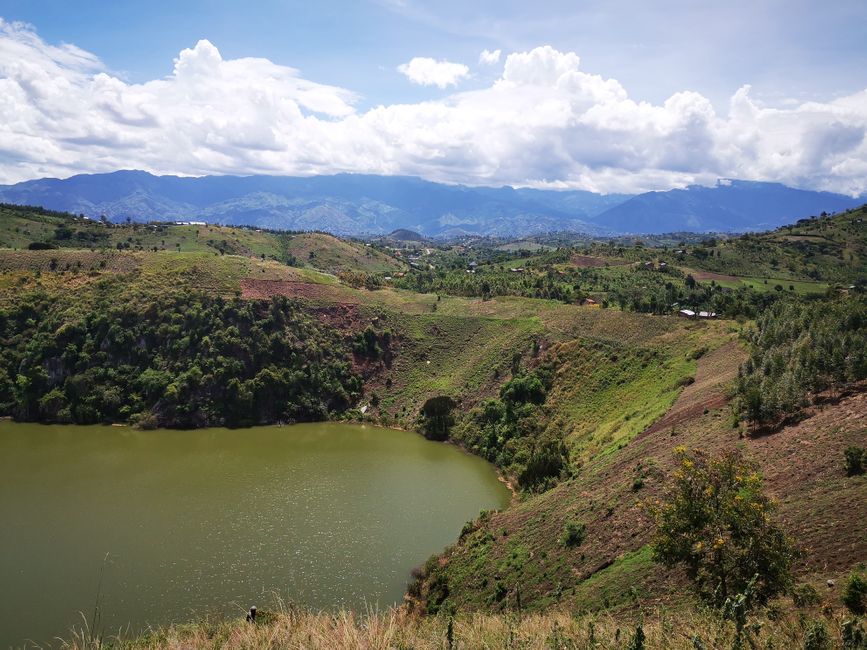
Awọn ijabọ irin-ajo Uganda

